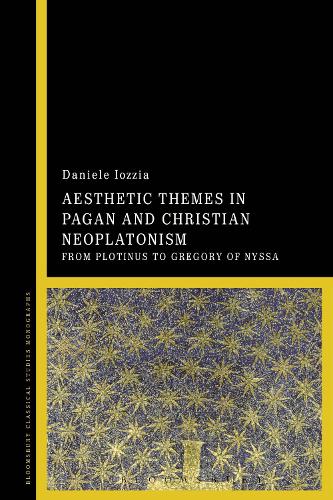
Aesthetic Themes in Pagan and Christian Neoplatonism: From Plotinus to Gregory of Nyssa
(Paperback)
Available Formats
Publishing Details
Aesthetic Themes in Pagan and Christian Neoplatonism: From Plotinus to Gregory of Nyssa
By (Author) Daniele Iozzia
Bloomsbury Publishing PLC
Bloomsbury Academic
1st October 2016
United Kingdom
Classifications
Tertiary Education
Non Fiction
Philosophy: aesthetics
111.85
Physical Properties
Paperback
144
Width 156mm, Height 234mm
218g
Description
Whilst aesthetics as a discipline did not exist before the modern age, ancient philosophers give many insights about beauty and art. In Late Antiquity Plotinus confronted the problem of beauty and the value of the arts. Plotinus reflections have an important role in the development of the concept of the value of artistic imagination during the Renaissance and the Romantic era, but he also influenced the artistic taste of his time. Aesthetic Themes in Pagan and Christian Neoplatonism reconstructs the aesthetic philosophical views of Late Antiquity, and their relation to artistic production of the time. By examining the resonance of Plotinus thought with contemporary artists and with Christian thinkers, including Gregory of Nyssa, the book demonstrates the importance of Plotinus treatise On Beauty for the development of late ancient aesthetics. The Cappadocian fathers interest in Plotinus is explored, as well as the consequent legacy of the pagan thinkers philosophy within Christian thought, such as the concept of beauty and the narration of the contemplative experience. Uniquely utilising philological and philosophical insight, as well as exploring both pagan and Christian philosophy, Aesthetic Themes in Pagan and Christian Neoplatonism represents the first comprehensive synthesis of aesthetic thought of Late Antiquity.
Reviews
[A] short and welcome addition to the growing body of scholarship dealing with late Mediterranean antiquity in pagan and Christian circles. * British Journal for the History of Philosophy *
This book displays expertise with respect to both the pagan and Christian traditions of late antiquity, and makes a convincing case for speaking of an aesthetics in this connection. The whole investigation is carried out with the sensitivity of an art-historian. -- Stephen Gersh, Professor of Medieval Studies, University of Notre Dame, USA
Author Bio
Daniele Iozzia is Research Fellow of History of Ancient Philosophy, Department of Humanities, University of Catania, Italy.
